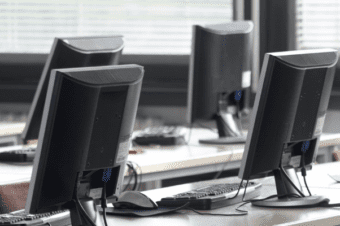
According to a survey of 2,000 Brits, undertaken by FlyResearch on behalf of Vodafone, almost two thirds (61 per cent) feel they are just as productive working from home as in the office but more than a quarter (27 per cent) worry their boss, clients and colleagues will not agree.
They also found that 41 per cent of people currently from home miss office jokes and light-hearted conversations.
Things I don’t miss about going into the office:
- The commute – which could turn a bright, shiny, optimistic morning person into a grizzling wreck
- Wearing shoes – I dress for work, though I don’t leave the house, but don’t bother with shoes
- The smell of other people’s sandwiches/soup/tacos/ and their mess in the staff kitchen
What I miss about the office:
- Watercooler moments, jokes and gossip and friendships at work
- Someone to bounce ideas off, to consult with, to share with, and to unload on sometimes
- The team, being part of a group dedicated to being the best we could be and reaching for better (it’s not quite the same via video-conference!)
The lockdown has shown that almost all white-collar jobs can be done from home and most of us enjoy the flexibility. We work well with video conference calling, tele-working and getting information via streaming services; there are a lot of great apps that we have adopted and are happy to keep using as part the new normal.
Someone on Radio4 yesterday said she missed dressing up for the office and going in to the place where she is a different person. I don’t quite get that, but I can see that sometimes the structure and focus of the office are something I miss.
Downsizing property not people
Things are going to change. If most of us can work effectively from home a lot of the time, then why would the organisations that employ us spend money on office space? It would be nice to think that salaries would increase as office space is divested, but that may be optimistic.
The Financial Times recently quoted Jes Staley of Barclays as saying: “The notion of putting 7,000 people in a building may be a thing of the past.”
Remote working suits many knowledge workers and the new norm is of flex and adapt to thrive with a focus on being responsive and versatile in return for more autonomy and accountability at work, which tends to improve employee engagement and productivity.
Trust and collaboration
Leaders see that the distributed model works – tasks get done, as staff can be trusted and are reliable and accountable wherever they work. Teams function and communicate effectively, even if they’re not in a shared office space, and there are benefits to having more choice around what we do and when we do it.
We need to consider though, the problems of social isolation and mental health. Maintaining connections with colleagues and workplace communities is important. Most of us need to be able to touch base with managers and team members regularly and value collaboration and knowledge sharing.
Whether you miss the office or not, the important thing is that any return to work is well managed in terms of hygiene, health and safety aspects. Oh, and can we bring our dogs to work?
If you liked this article, you might like this one.








